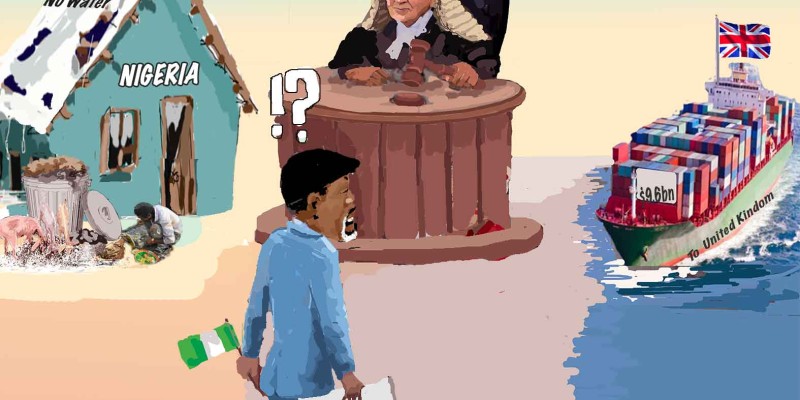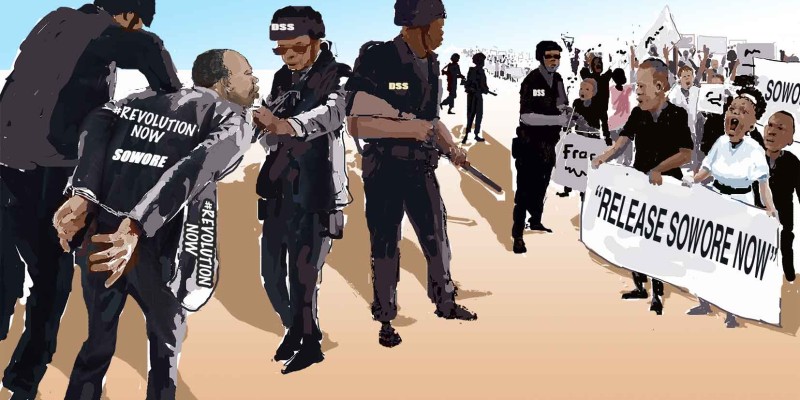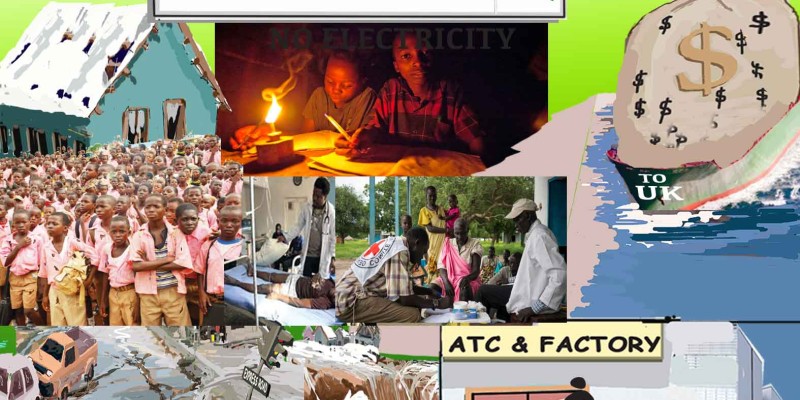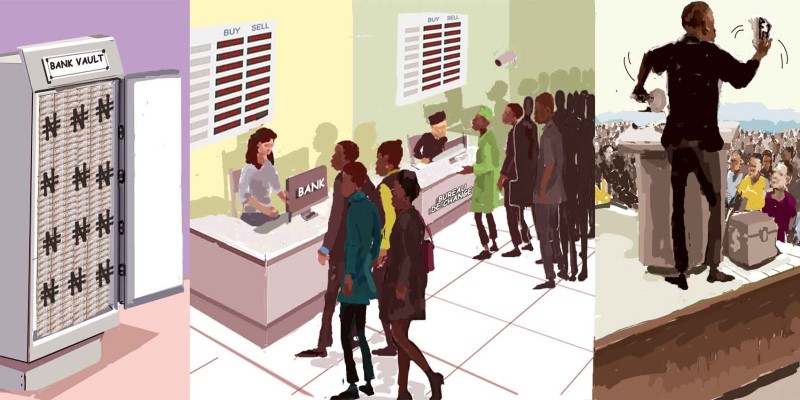HAUNTING ECHOES OF A SAGE
By: Sir Henry Olujimi Boyo (Les Leba) republished in December 2018
INTRO:
Last week, this column republished “World’s Poverty Capital and Illicit Financial Flows!”The article discussed Nigeria’s position as one of the poorest nations in the world and critically discussed the culture of corruption that serves as a major contributing factor. All republications can be found in the archives using the below link.
(See www.betternaijanow.com for this series and more articles by the Late Sir Henry Boyo)
Today’s republication is an interview summary by Tayo Odunlami which the Late Sir Henry felt necessary to reproduce in his weekly column. It provides sound rationale to crucial questions about Nigeria’s economic situation and echoes sentiments that align with the ‘gospel’ Sir Henry preached during his lifetime.
As you read through the below article taking note of previous events and rates, keep in mind its first republication (2018), a clear indication that things remain stagnant even as we face the year 2023.
The late Prof. Samuel Aluko was probably Nigeria’s best-known Economist, until he passed on in 2012. In addition to his prowess as a notable scholar and sage, he later served as the Chairman of the National Economic Intelligence Committee, in the Abacha Administration, and arguably provided the robust intellectual anchor to the military Dictator’s successful Economic Programmes, in which, despite Nigeria’s international pariah status, the Naira notably remained stable at around N80=$1, even when the foreign reserves base was a paltry $4bn. Nonetheless, as we stand on the threshold of year 2019, with our economy precariously balanced on the sharp edges, of inflation, high unemployment and a heavy debt burden, there may be wisdom in recognizing the alternative approach suggested by Aluko for our economic freedom.
The following is a summary of an interview with the distinguished Economics Professor by TAYO ODUNLAMI. The interview was earlier published in The NEWS edition of 23rd February 2004, as “OBJ WILL RUIN THE ECONOMY.”
Q. “About four years ago, you criticized government’s devaluation of the naira in relation to the state of economy generally. Between then and now, how has the economy reacted to the government tinkering?”
A: “Thesituation is worse now because, once a non-industrial nation begins to tinker with its currency, send it on a free fall, as it is called, the economy must go in to a spin. Before this administration came into office, the naira was about N100 to a dollar, the black-market rate was N120. Today, the official rate is about N135 to the dollar, while the black-market rate is about N145. We are courting disaster. One, government revenue is not increasing in comparison to the value of the naira. The real purchasing power of government revenue is falling, so government will not be able to finance its commitment to the extent it should. Workers will also be badly affected because the value of their earnings would have been eroded by the terrible devaluation of naira.”
“Look at the fuel price. The price now in naira terms, is not as high as what we were paying in 1980. In 1980, the value of the naira was 60kobo to the dollar and it was easy for the industries to meet their commitments. Now government, in the name of privatization, is saying it cannot be involved in industrialization. But see all the industries. They are all dying because the cost of sourcing funds is so high and value of naira so low, that operating in such an environment would end in failure.”
“When government was shouting about the cocoa boom, that farmers would make money, and the private sector would boom, we told them they were getting it all wrong, but they would not hear. Now where is the cocoa boom? Government has competent advisers, for example, that woman Dr. Iweala. But may be because of their career with IMF, The World Bank, they’re not advising government well. You develop your country well from home before you can start talking about globalization.”
Q. “But the world over, the tilt is towards privatization and lesser participation of government in industrial economy.”
A: “Government itself has its own responsibilities. So, to say that government is not supposed to take part in the economy is bunkum. They are already ascribing failure to government. The economy in Asia is developed essentially by government and then by private companies. You cannot rely on foreign companies for the growth of your economy.”
“In practice, foreign investment cannot add more than 10 percent to the economy, the 90 percent will be done by local industry. So, President Obasanjo has been running around the world saying he wants to attract foreign investment. We are now democratized, we are no longer a pariah state. Even if we are a pariah state, we will develop. Look at Biafra, when they were in a tight corner, they were refining petroleum. But here we are, we can’t even repair our refineries because we are looking for everything foreign. In the first four years, after return to civil rule, you cannot repair even only one of them. Something must be wrong.”
“Government must be pro-active. But Obasanjo’s philosophy is that government must withdraw from participating in the economy. So, he has been withdrawing. An economy of withdrawal, of defeat, is an economy of disaster. This is why we have a disaster economy now. We should be thinking of having many refineries. Even in Sokoto, there should be a refinery. Smaller countries have 10, 15 refineries. All the money they are realizing now, what are they doing with it? That is why they steal it; government is leaving undone what it should do. Government officials are corrupt. If government has so much responsibilities and it is struggling to meet those responsibilities judiciously, they will be less corrupt. Because government has money that is not using well, the money must be stolen by somebody or they find a way of using it to rove around the world.”
Q. “You’ve been criticizing foreign investments. But if foreign investments can be well exploited by controlling capital flight, would they not grow the economy?”
A: “But if there’s no industrial development in the country, no foreigner will want to invest there. They are not so much interested in the risk here because, they can easily make better gains, more secure gains, in their counties where the industrial climates are more conducive for investment. Here, there’s no steady power supply, no water and life is not safe. When foreigners hear they were kidnapping and killing people in the Niger Delta, do you think they would want to come here and invest? So, we can’t attract foreign investment in the present situation. Nigerians themselves repatriate their funds abroad. If Nigerians don’t feel their money is safe here, how can foreigner feel, so the truth is they know Nigeria more that we do.”
Q: “But don’t you think that the level of corruption too deters foreign investment?”
A: “No, corruption is not a main stumbling block to investment, there is hardly a country in the world where there is no corruption. One of the most corrupt countries is America, Americans steal a lot, but they retain the money in America and it is used to develop America. Americans and Europeans steal the money in Nigeria but leave it in America and Europe, there is nothing for Nigeria, so this is the problem. The tendency for Obasanjo and his Officials to junketing abroad contributes to capital flight. It is the same thing throughout Africa. If you look at the economies in Africa, every currency is down. That is why Africa is poorer today than in 1960 or 1980.”
Q: “So what is the solution?”
A: “Government has been pursuing a negative action. Government must encourage the local industries by producing cheap funds for them to grow. Government must provide all the necessary infrastructure. Government must provide technical education and provide jobs.”
“It is better not to send somebody to school than send him, and you don’t give him a job. You cannot train people and leave them jobless. They become dangerous, and this is why you have sophisticated armed robbery in the cities now. There is no armed robbery in the village where the people are largely uneducated.”
“It is not difficult to develop an economy when you get the value of your currency right. Even in agriculture, when seeds are planted, you hear there’s no money to harvest them, there’s no money because, the value of currency is gone. The value of whatever they’re even harvesting now is more than 10 times less than what they were getting 10 years ago.”
SAVE THE NAIRA, SAVE NIGERIA!!







